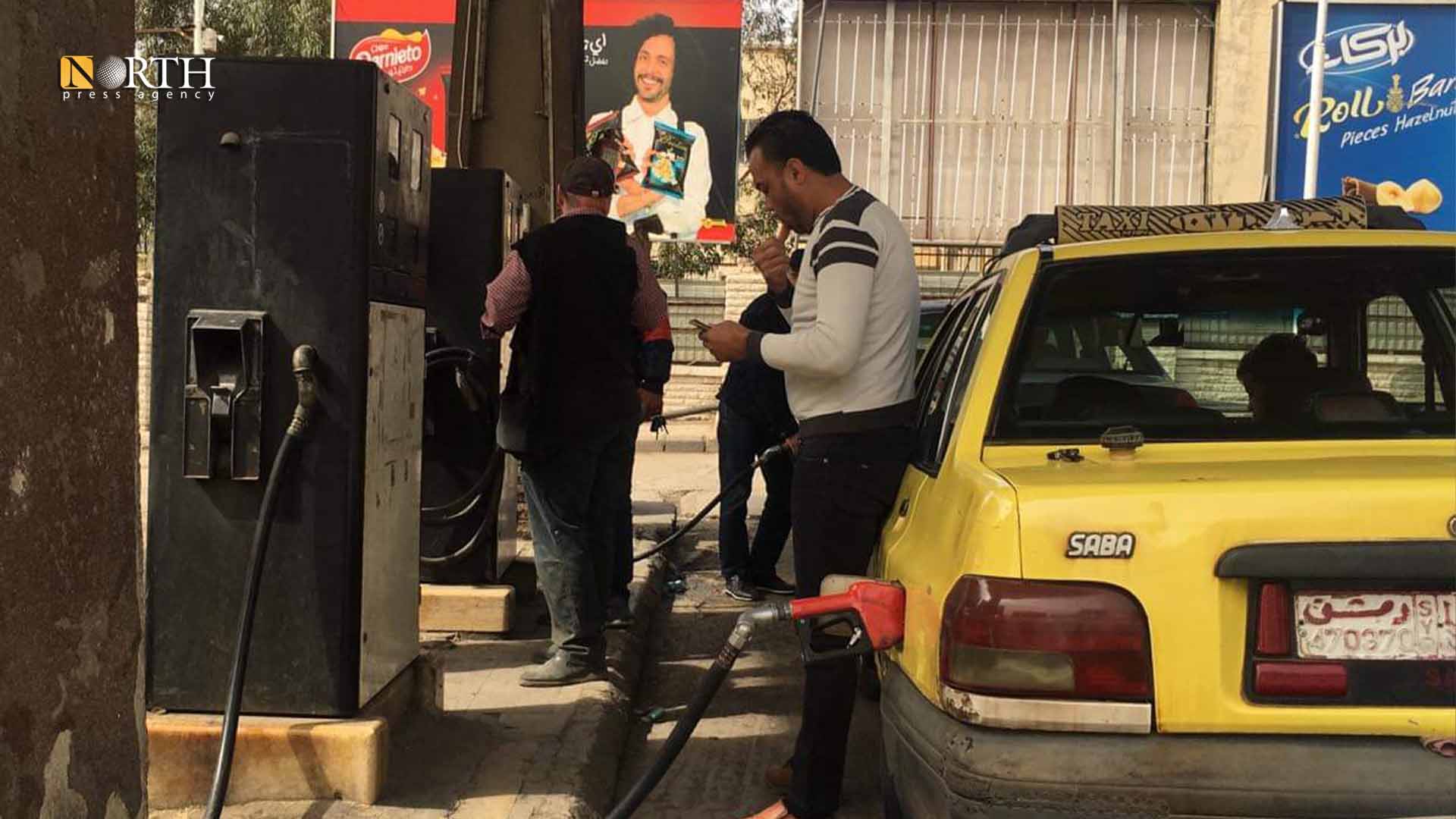Syria’s failure to manage fuel caused crisis: Economic experts in Damascus
DAMASCUS, Syria (North Press) – Economic experts in the Syrian capital Damascus say that the fuel crisis that the government areas have been witnessing is due to the government’s failure to manage the issue of securing fuel and reserve stock.
They expected the crisis to last another week, as the supplies need approximately a week to be emptied and distributed to gas stations.
More than a month ago, the gasoline, gas, and fuel crisis worsened in government-held areas, and the reduction of fuel allocations and the increase in fuel prices led to a major transportation crisis, especially in public transport, some of which stopped working permanently.
At the end of March, Syrian Minister of Oil and Mineral Resources Bassam Tohme said, ”the disruption of navigation in the Suez Canal for the fourth consecutive day due to the standstill of a giant container ship had affected oil supply to the country.”
After a month-long suspension due to the stoppage of crude oil, Syria’s Baniyas refinery has returned to work several days ago, according to what the General Manager of the refinery, Mahmoud Qassem, told the Syrian state news agency SANA.
On Thursday, Syrian sources revealed to the Syrian Observatory for Human Rights that an Iranian oil tanker carrying one million barrels of crude oil had arrived at the port of Baniyas.
Days earlier, Syrian Prime Minister Hussein Arnous announced the government’s intention to import more crude oil “to cover the fuel and gasoline shortages caused by Western sanctions that have disrupted Iranian oil shipments.”
Arnous indicated that his country imported 1.2 million tons of Iranian crude oil, along with other petroleum products worth $820 million, in the last six months.
At the same time, he revealed that his country’s production had declined from 380,000 barrels in 2011 to 20,000 barrels per day now, “Syria has become dependent on imported oil and has used up foreign currency in large amounts to pay for petroleum products.”
On Monday, the government decided to completely transfer the process of distributing gasoline via a smart card, according to the text message system, in a mechanism similar to the way gas is distributed.
No breakthrough for the crisis
However, residents of the capital criticized the mechanism, saying that it did not provide a solution to the fuel crisis in government-held areas.
“The citizen will soon notice a breakthrough in the quantities of oil derivatives put on the market,” Qasim indicated.
An economic advisor in the government who preferred not to be named said, “The breakthrough is not now, and not only in hydrocarbons, but in all energy carriers, unless the recent Russian agreement regarding oil, which will solve the problem for a specific period of time, is implemented.”
Last month, the Ministry of Oil and Mineral Resources approved the second contract with a Russian company to explore for petroleum in regional waters in the Mediterranean.
Under the contract, the Russian Kapital Company will be granted the exclusive right to explore for oil and develop it in the region. The sharing of portions will be based on the price of oil and the quantities produced, as well as natural gas, without clarifying the mechanism and proportions of each side’s shares.
The fuel shortage, and the government’s reduction of fuel and gasoline allocations by nearly half, resulted in an unprecedented transportation crisis.
The government attributed the reason for the reduction of fuel allocations to the delayed arrival of oil supplies by sea and the suffocating economic blockade on the country.
A university professor at the Faculty of Economics at the University of Aleppo, who preferred not to be named, told North Press that “the reduction in quantities is greater than what is announced by the Ministry of Oil compared to what was reported a week ago.”
“Does the reduced ratio compare to the demand ratio when there was no crisis?” he wondered.
“There is a problem with supplies, but the reason is still unknown, whether in terms of the lack of liquidity for the government, or in terms of non-implementation of the contracts signed with the Russians and the Iranians,” he stated.
Messy statements
“The statements of some officials reflect anarchy in the administration,” an administrator at the National Institute of Public Administration said.
The administrator suggested the need to liberalize the price of gasoline and fuel and calculate the cost of products according to them, and then increase the income in measured proportions in parallel with the social support plans for some segments so that the population could live “with dignity.”
The decision to reduce gasoline and fuel for touring cars and public and private transport buses was preceded by a decision issued in the middle of last month, according to which the Syrian government raised the prices of these two materials, which are “subsidized materials that the citizen needs on a daily basis.”
“When the government pays salaries equal to the real cost of living for a family of five, which amounts to one million Syrian pounds (SYP) per month, then let the prime minister sell a liter of gasoline for 2,100 SYP, and no one will object to that,” he pointed out.
On April 3, Arnous announced that his government “buys a liter of gasoline for 2,100 SYP and sells it for 750 SYP.”
The administrator stated that the difference between the cost prices and the selling price of the subsidized materials has, over the years, formed the most “controversial and provocative material for the population, and opened a wide field for corruption.”

